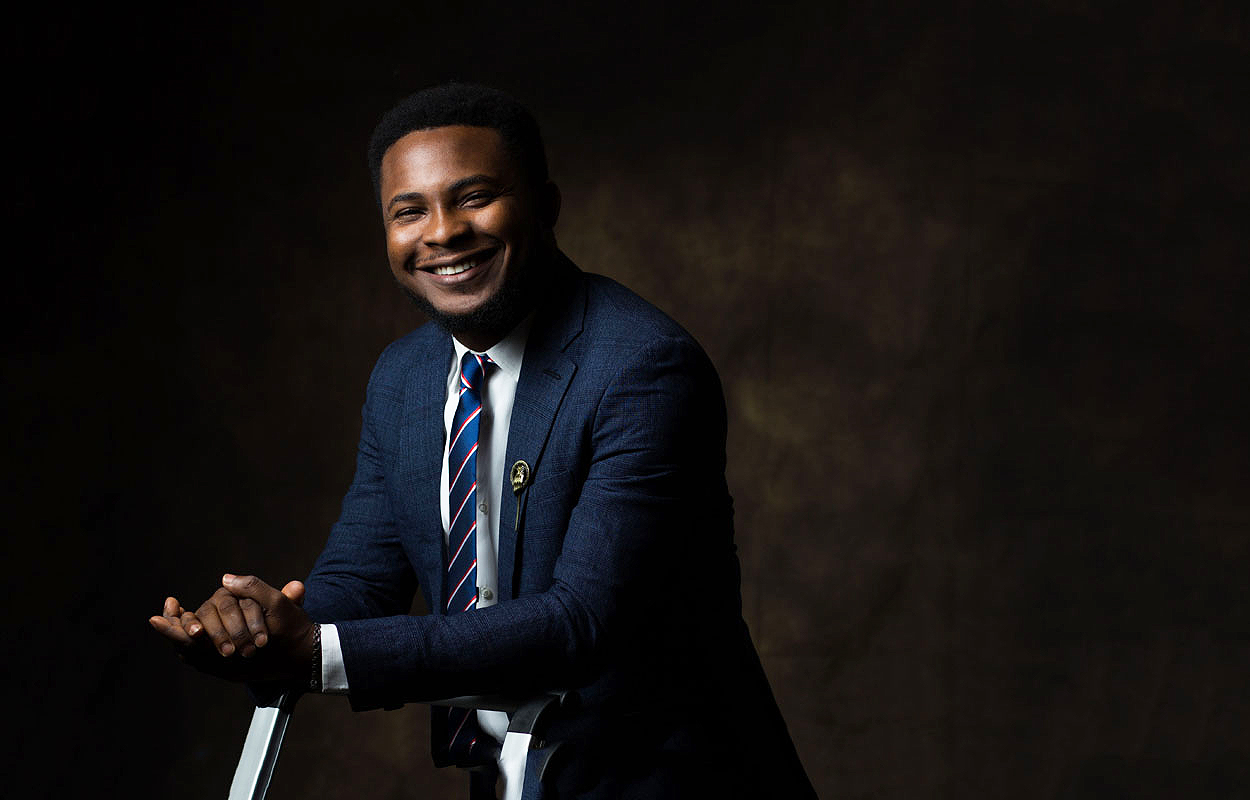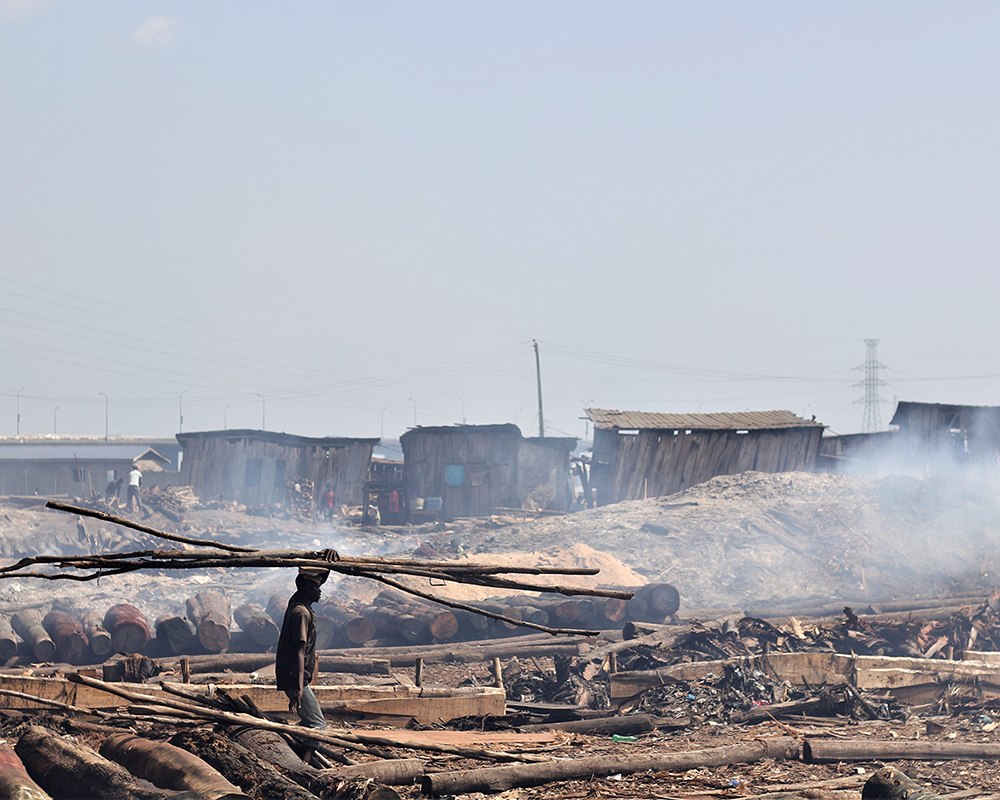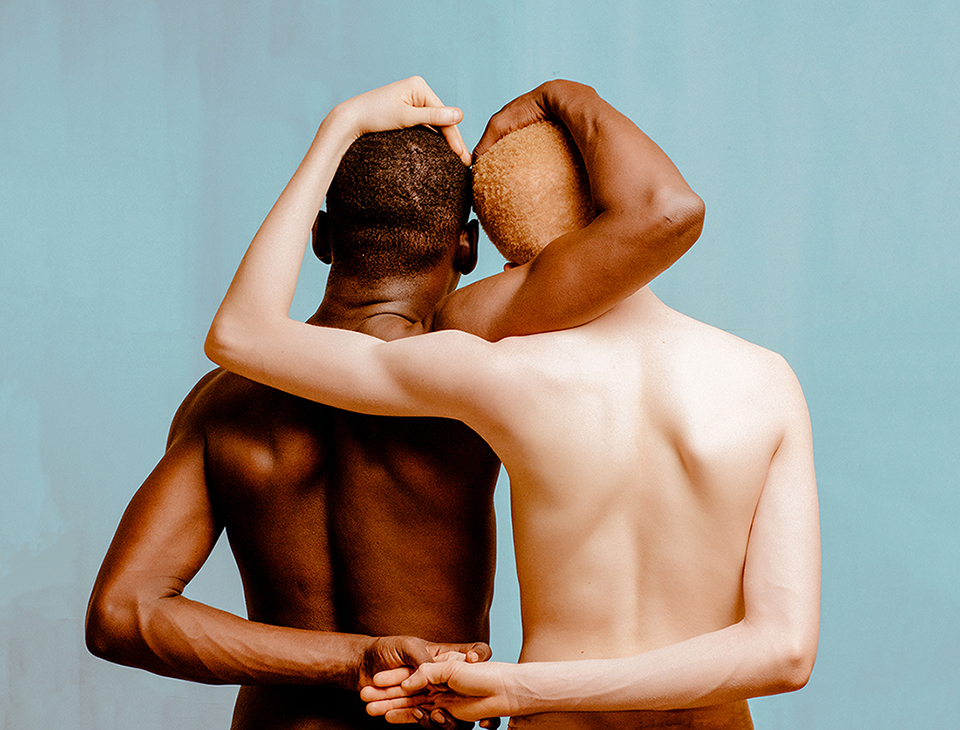Interview by Visual Collaborative
June 2020 7 min read

Oluwafemi Oso, known as Femi (Feh-mee), is a technology professional and Computer Enthusiast who lives in the Winnipeg province of Manitoba in Canada. Formerly a resident of Lagos, and an IBMer, he partnered with various professionals within the organization innovating on the continent. As a feature in our Oxygen interview series, Oso talks to us about his experiences in the industry, perspectives, and love for photography.
(VC) You recently traded the hustle of Lagos for some peace and scenery in Winnipeg, Canada. Had this transition been in the works?
(Femi) From an early age, I had always wanted to explore different parts of the planet. I wish to experience various cultures while expressing myself as an artist and technology enthusiast.
So I made the huge move from the buzz and eclecticism of the most popular West African city, Lagos to a slower-paced city with a strong cultural heritage. Even though I arrived in Winnipeg at the end of summer, the winter kicked in pretty early and hit pretty hard. There is a reason it’s dubbed Winterpeg!
Even though it took me a couple of months to settle in, but now am beginning to network within the art and technology community, not just in Winnipeg, but across North America.
(VC) How has Covid-19 and its social distancing realities factored into your
photography and technology work?
(Femi) The WHO (World Health Organization) calls it the “defining global health crisis of our time” and it is indeed! Covid-19 has undoubtedly impacted my photography negatively, as I had to cancel all my gigs so as to stay home and help flatten the curve. It is such a global tragedy and we all need to do what we can to help each other.
In the midst of this pandemic, I am taking out time to redesign my creative
processes and ideate on projects I’d be working on as soon as some normalcy returns. I guess this is what Edward de Bono meant when he said: “Creativity involves breaking out of expected patterns in order to look at things in a different way.” It explains why I constantly seek new ways to express myself as a photographer.

Daily Hustle by Femi Oso
As a tech professional, however, I’m no stranger to the WFH (Work from home) culture. Discussions around the future of work have been on for a while but many companies now need to make those digital transformation decisions faster. The coronavirus pandemic is making us all rethink how we learn, shop, dine out, travel, and relate with others in the community. The fact is that the world will not be the same again but it is difficult to fully tell what that new normal would be. Despite the numerous uncertainties ahead, what is clear is that we’d eventually need to embrace a lot more virtual collaboration.
I have carried this work ethic into everything that I do. IBM taught me that innovation is at the core of every disruption, and this has helped me proactively seek creative ways to tackle challenges, regardless of the industry
(VC) You spent some time at IBM and worked with various partners on the
African continent, what were the timeless values you picked up working for this international company?
(Femi) I started my IT career at IBM, shortly after graduating from university. I had the opportunity to go above and beyond in demonstrating personal dedication to client’s success on several projects across the continent of Africa, and also involved in capacity building of university students in AI, Cloud Computing and Analytics. I have carried this work ethic into everything that I do. IBM taught me that innovation is at the core of every disruption, and this has helped me proactively seek creative ways to tackle challenges, regardless of the industry.
Another value that has always resonated with me is building trust and personal responsibility. At IBM, it was important to actively cultivate good relationships with fellow IBMers, clients, and business partners. I find that when people know that they can count on you, they are willing to reciprocate the loyalty.
(VC) A perfect world does not exist, but if one did what core values would you make a staple in the community?
(Femi) In the words of Audre Lorde, “it is not our differences that divide us. It is our inability to recognize, accept, and celebrate those differences” As each day passes, there seems to be a decline in the way we embrace humanity. So in a perfect world, I’d like to see us celebrating our differences, knowing that we are each unique in our way. And that every individual brings their flavor to spice up our community, and not to serve as the root of division.

UNITY by Femi Oso
(VC) We have witnessed lots of manipulation through technology on images or other people’s works online. Copyright laws do not move as quickly as the industry has evolved. What are your general thoughts on this?
(Femi) Matters of plagiarism and theft of intellectual property have been present throughout the creative history. Naturally, writing and film copyright laws have had more time to evolve than photography but with the rapidly changing world of digital photography and smartphones, the terrain is even more slippery. Like all legal issues, copyright laws vary across geographical locations, which makes it even harder to track down and prosecute image theft. Photographers and other imaging artists now showcase their work on their websites or social media accounts and are aware of the need to protect their property. For many, this simply means watermarking their images but some go the further extent to embed distinctive metadata into the EXIF file or include a digital signature.
Another shift is that good quality images are longer restricted to ad agencies or advertisements: individuals need them in their work or school presentations or simply to share on social media. The Creative Commons search tool, for instance, provides access to millions of images, categorized by licensing type. However, stock photos on platforms like Pixabay, Pexels, and Unsplash offer Creative Commons Zero (CC0) licenses, make attribution, or a donation optional. There are obvious pros and cons for putting up creative work on these sites. The issue of retouching or photoshopping raw images has also been a contentious one. While we condemn cases of image-doctoring for malicious intent, what about using filters or altering images to make models appear more attractive? What of computer-generated art?
My belief is that photography is art and artists should be free to express
themselves within responsible limits. This may require them to obtain
consent/permission, give credit, sign agreements, and take the right steps to
protect their creative work. I am also excited to see what the future holds for
the photography industry.
(VC) Some mention different historical times as a period they admire for affluence or culture. If you can time-warp to any era to collaborate with its culture, what period would it be and why?
(Femi) That would definitely be the 1970s, also known as the disco era. What interests me the most about the fashion scene in the ’70s was the mix of bright colors and textures to form hippie style, largely influenced by the disco subculture. I’d love to capture that with my lenses.
(VC) At this stage of your collective accomplishments, If you can work
alongside any international public figure, brand, or enterprise. Who would it or they be, and why?
(Femi) I was recently featured in PhotoVogue Italia. Much more than that I anticipate working closely with the team of creatives at Condé Nast, in creating images for Vogue and GQ. I love their creative approach to storytelling, which has stood the test of time across different cultures and generations.